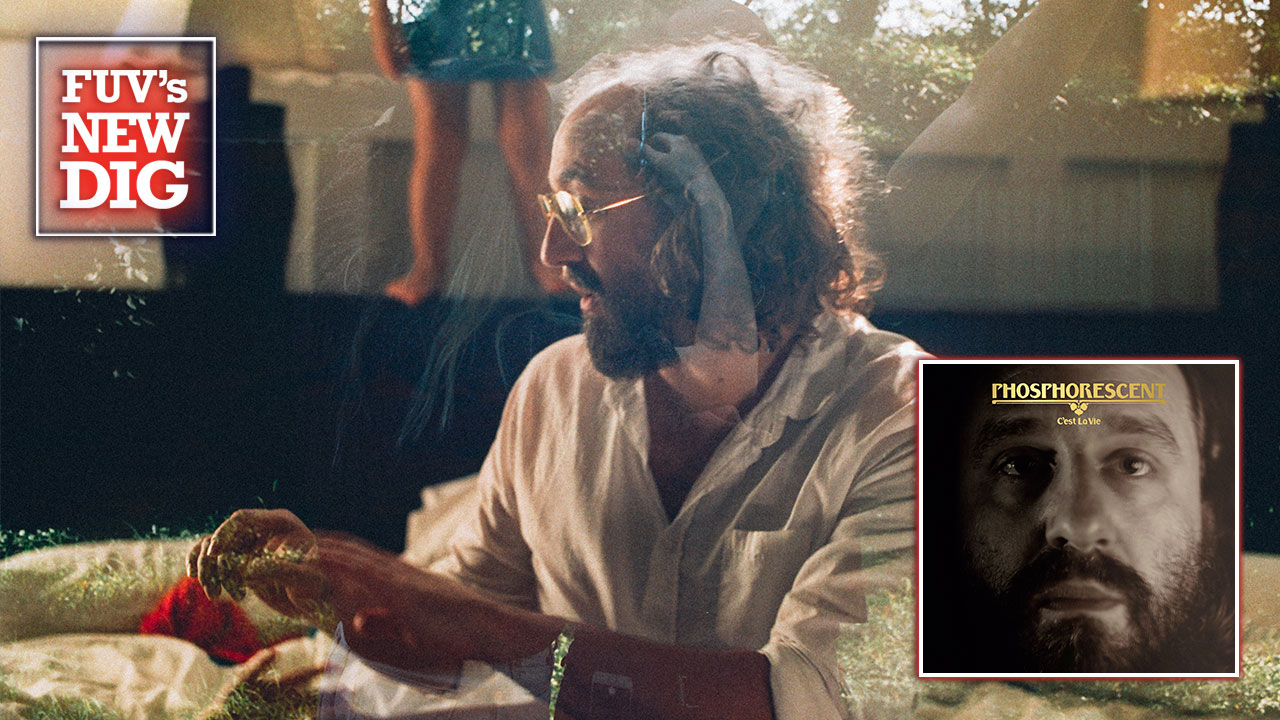Phosphorescent

Phosphorescent's Matthew Houck (photo by Daniel Arnold, PR)
Phosphorescent
C’est La Vie
Dead Oceans
The last few years have been relatively quiet for fans of Matthew Houck, who records as Phosphorescent. But for the musician, the last few years have hardly been uneventful. A short period filled with numerous life-altering events helped lay the foundation for his new album, the first for Houck in five years.
C'est La Vie is a dense, somber affair from the Alabama-born Houck, but not a depressing one. It rises up and peeks at the sun shining outside, but just once or twice. There are a lot of life changes to examine under a haze of synthesizers, pedal steel guitar, and streams of voices.
Since the release of Phosphorescent's last album, 2013's Muchacho, Houck got married, became a father, moved from Brooklyn to Nashville, built a new recording studio from the ground up, and faced the challenge of a serious illness, meningitis. That's life, and C’est La Vie is the name Phosphorescent chose for his seventh studio album. (In between, came a live album, Live At The Music Hall.)
The new album is bookended by two moody instrumentals: a brief opener, “Black Moon/Silver Waves,” and a sprawling finale, “Black Waves/Silver Moon.” The sound is critical to the vibe of C’est La Vie, as with its centerpiece: the eight-minute rocker “Around The Horn.” The song strengthens the weight of the album’s overall message.
As Houck told Rolling Stone, “C’est La Vie No. 2” is a nod to Leonard Cohen’s “Chelsea Hotel No. 2." It's a soft mediation on the passage of time and the fact that things will change in life; that cycle also defines “There From Here.” Sometimes these changes are sudden and unexpected, as Houck sings: “If you’d have seen me last year I’d have said ‘I can’t even see you there from here’.”
He writes about a holiday spent in Australia in “Christmas Down Under,” where he learned how to scuba dive. The underwater environment that Houck witnessed also opened his eyes to life that is on this planet, but lies just out of sight. "Beautiful Boy" recognizes beauty that directly within one’s reach; in this case, Houck’s baby boy, who was born after his move to Nashville. His daughter, who was born while the family was still in New York City, has her moment too, on the album’s upbeat “New Birth In New England.” During that tune's choir-filled bridge comes the sound of his daughter’s heartbeat, taken from her first sonogram.
Life is not without its struggles, and in the song "These Rocks," Houck declares: “These rocks, they are heavy/Been carrying em around all my days/These rocks, they are heavy/I guess I wouldn’t have it any other way.”
C’est La Vie is mostly Phosphorescent’s solo creation. He wrote all of the songs, produced the album, and throughout, he plays guitar, bass, keyboards, and handles most of the layered vocals. His wife, the composer Jo Schornikow, contributes significantly and plays keyboards on most of the album.
Phosphorescent draws upon his own life changes to feed his new album; those personal reflections add a deeper layer to the musician's catalog, which traces back to his 2003 debut, A Hundred Times r More. He touches on the types of things that we all experience, which makes this release relatable to everyone. After all, life is going to happen, so c’est la vie.
Listen to an FUV Live session with Phosphorescent's Matthew Houck on-demand.

